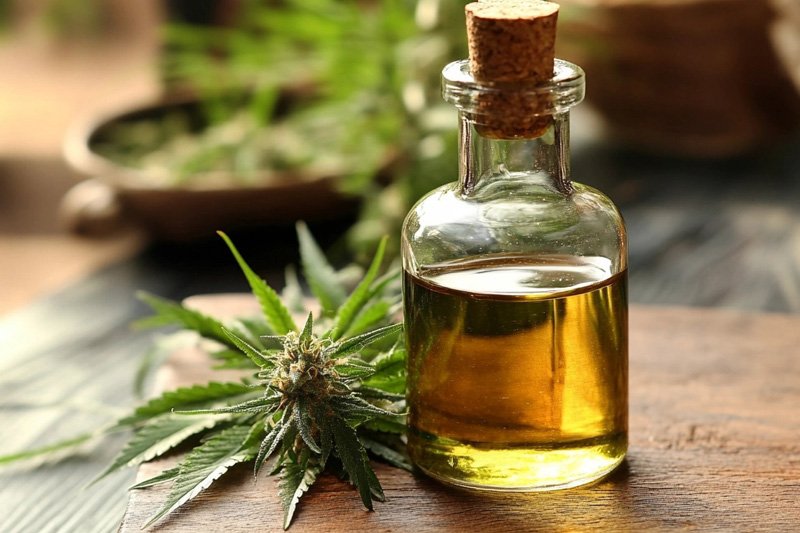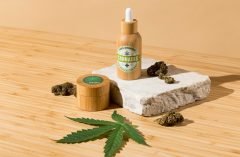Table of Contents [show]

Cannabis is no longer just a counterculture staple from the 1960s—it’s now at the forefront of wellness conversations, especially for the Baby Boomer seeking alternative health solutions. With the growing availability of CBD and THC products, understanding the differences between these two compounds is essential. This guide will explore how CBD vs. THC functions, their benefits for seniors, and what every Boomer needs to know to make informed decisions about cannabis use.
Before we get into the details, here are those 10 Life-Changing Facts:
1. CBD Is Non-Psychoactive, While THC Gets You High
•CBD provides therapeutic effects without the euphoric sensation associated with THC. This makes it ideal for seniors looking to avoid mind-altering experiences.
2. Both CBD and THC Alleviate Pain but Work Differently
•CBD helps reduce inflammation and neuropathic pain, while THC is more effective for severe, chronic pain (like that caused by fibromyalgia or cancer).
3. CBD Can Relieve Anxiety Without Paranoia
•THC, especially in high doses, can cause anxiety and paranoia, but CBD has a calming effect, making it better suited for managing stress in older adults.
4. THC Is Better for Appetite Stimulation
•Seniors facing appetite loss due to illness or medications may benefit from THC, which is known to trigger hunger (the “munchies”).
5. CBD Improves Sleep Quality Without Grogginess
•For those dealing with insomnia, CBD promotes deeper sleep without the morning grogginess that can accompany over-the-counter sleep aids or THC products.
6. CBD and THC May Have Synergistic Effects
•When used together (known as the entourage effect), CBD and THC can enhance each other’s benefits, such as better pain management and improved mood.
7. Both Compounds Help with Mental Health, but Differently
•THC can help reduce anxiety when taken in controlled doses, while CBD offers long-term relief from chronic stress without affecting mental clarity.
8. CBD Has No Legal Restrictions in Many States
•CBD is federally legal in the U.S. as long as it contains less than 0.3% THC. However, THC remains regulated and is only legal in states where recreational or medical marijuana is approved.
9. Different Products Work for Different Needs
•CBD is available in oils, creams, capsules, and edibles, while THC products include tinctures, vape pens, and edibles. Seniors should choose products based on their specific health goals.
10. Consulting with a Doctor Is Crucial Before Use
•Cannabis compounds can interact with certain medications. Seniors should always consult their healthcare providers to ensure safe use of CBD or THC products.
CBD vs THC: What Are They?
CBD (cannabidiol) and THC (tetrahydrocannabinol) are the two primary compounds in cannabis plants. Both belong to a class of chemicals called cannabinoids, which interact with the human body through the endocannabinoid system (ECS). While they share a similar molecular structure, their effects are vastly different.
•CBD is non-psychoactive, meaning it doesn’t cause the “high” typically associated with cannabis. It is often used for pain management, anxiety relief, inflammation reduction, and better sleep.
•THC, on the other hand, is psychoactive, producing a euphoric or “high” sensation. In addition to recreational use, THC benefits include appetite stimulation, nausea reduction, and chronic pain relief.
For Baby Boomers, choosing between these two compounds depends largely on personal wellness goals. Some may prefer CBD to avoid the high associated with THC, while others might find THC’s psychoactive effects helpful in managing anxiety or pain.
The Health Benefits of CBD for Seniors
1. Pain Management Without the High
Chronic pain is one of the most common ailments faced by seniors, and CBD for seniors has emerged as a promising solution. Research suggests that CBD interacts with ECS receptors to reduce inflammation and neuropathic pain. Whether applied topically or ingested through oils and tinctures, CBD may help alleviate arthritis, joint pain, and even post-surgical discomfort.
2. Anxiety and Stress Reduction
Seniors dealing with anxiety, PTSD, or insomnia often turn to CBD. Unlike THC, CBD does not trigger paranoia or excessive mental stimulation, making it a safer option for older adults. Regular use of CBD oil has been shown to promote relaxation without impairing cognitive functions.
3. Improved Sleep Quality
As sleep problems become more familiar with age, many seniors use CBD to manage insomnia. Unlike traditional sleep medications, which can have undesirable side effects, CBD offers a natural way to improve sleep by reducing anxiety and regulating the sleep-wake cycle.
The Health Benefits of THC for Seniors
1. Enhanced Appetite and Weight Management
For Baby Boomers struggling with weight loss or poor appetite due to illness or medication side effects, THC benefits include stimulating appetite. Many seniors undergoing chemotherapy or managing chronic conditions like HIV have found THC products helpful in maintaining body weight.
2. Pain Relief for Severe Conditions
While CBD works well for moderate pain, THC may be more effective for treating severe chronic pain and neuropathy. Seniors with conditions like fibromyalgia, cancer-related pain, or spinal injuries often turn to THC-rich cannabis products for relief. In this way, the CBD vs THC content goes to the THC-rich products.
3. THC for Mental Health
Despite its psychoactive nature, THC for anxiety relief has been beneficial in certain cases. It can promote relaxation, reduce anxiety, and even help combat depression. However, finding the right dosage is key, as too much THC can cause increased anxiety or paranoia.
CBD vs THC – Choosing the Right Products: Oils, Edibles, and More
In the CBD vs THC contest, all Baby Boomers have a variety of cannabis products to choose from, including tinctures, capsules, topicals, edibles, and vape products. Here are some tips for selecting the best option:
1. CBD Oil: Great for sublingual use (under the tongue), providing fast absorption for pain relief and anxiety.
2. Edibles: Ideal for longer-lasting effects, but take longer to kick in.
3. Topicals: Best for localized pain relief without systemic effects.
4. Vape Products: Fast-acting but may not be suitable for seniors with respiratory issues.
Cannabis Use for the Baby Boomer: Things to Consider
1. Start Low and Go Slow
For Baby Boomers new to cannabis, it’s crucial to start with a low dose and gradually increase it until the desired effects are achieved. This approach minimizes the risk of side effects, especially for those using THC products.
2. Consult a Medical Professional
Before incorporating cannabis into a wellness routine, seniors should consult with a healthcare provider, especially if they are already taking prescription medications. Cannabis can interact with certain medications, so professional guidance is essential.
3. Understand Local Cannabis Laws
Cannabis laws vary by state. While CBD is legal at the federal level, THC products are only legal in states where recreational or medical marijuana use has been approved. Seniors should familiarize themselves with local regulations to avoid any legal issues.
CBD vs THC: Which One Should the Baby Boomer Choose?
The choice between CBD vs THC ultimately depends on the individual’s health needs and comfort with psychoactive effects. For seniors seeking pain relief, better sleep, or reduced anxiety without a high, CBD is the ideal option. Those dealing with severe pain, poor appetite, or anxiety might find THC more effective, provided they can tolerate its psychoactive properties.
Conclusion: The Future of Cannabis in Senior Wellness
As more seniors explore cannabis for health and wellness, understanding the differences between CBD and THC becomes essential. Both compounds offer unique benefits, and when used correctly, they can significantly enhance the quality of life for Baby Boomers. Whether through CBD oil, THC edibles, or topical products, cannabis is emerging as a valuable tool for managing pain, anxiety, and sleep disorders.
By starting with low doses, consulting healthcare professionals, and staying informed about local laws, Baby Boomers can safely incorporate cannabis into their wellness routines. With ongoing research and product innovation, the future of cannabis for seniors looks promising.
More Information in Spinfuel:
5 Shocking Truths About CBD and Mental Health: What You Need to Know
Navigating the Chaos: CBD’s Role in Cultivating Inner Peace in 2024
Nano-Powered CBD Oil: Exploring Its Astounding Future With Enhanced Formulations
8 Incredible Benefits of CBD to Improve Your Health and Well-Being




